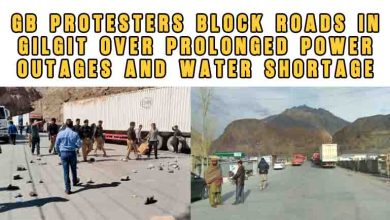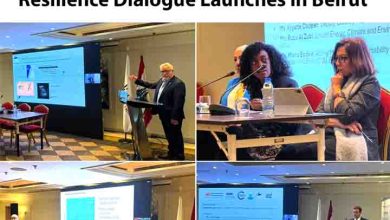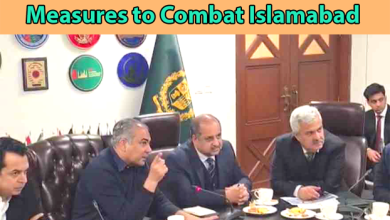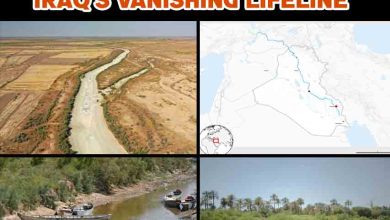Water accounting: IWMI Pakistan organises consultation workshop
LAHORE: The International Water Management Institute (IWMI) Pakistan organised a consultation workshop on water accounting for accurate assessment of water resources in Punjab.
The workshop was organised under the UK Aid-funded Water Resource Accountability in Pakistan (WRAP) Programme Component 1: Climate Resilient Solutions for Improving Water Governance (CRS-IWaG).
Dr Mohsin Hafeez, Director – Water, Food and Ecosystems/Team Leader, WRAP Programme Component 1: CRS-IWaG said, “the government has information of surface water for the Indus Basin but groundwater data is unavailable. This obstructs accurate decision-making for water management. The development of national water accounting framework will allow the government to make informed decisions.”
Dr Mohsin also informed that IWMI Pakistan under the WRAP Programme Component 1: CRS-IWaG will be developing a water accounting framework at the federal, provincial (Punjab) and District (Okara) level. IWMI Pakistan is installing Eddy Covariance flux towers in Okara, Chakwal, Rahim Yar Khan, and Sheikhupura, which will provide data regarding water and carbon emissions in agriculture. It will also contribute towards agro-ecological zoning.
Engr Habib Ullah Bodlah, Chief Engineer Lahore, Punjab Irrigation Department (PID), discussed the preparation of water accounts by Indus River System Authority (IRSA) at the provincial level. According to him, “The provinces prepare water accounts of their canal system with respect to canal allocations and deliveries. The same are shared with agriculture department and other stakeholders for comments. He also informed that the Programme Monitoring and Implementation Unit (PMIU) – a special unit of PID, is mandated to monitor these allocations and deliveries from main canal to tertiary canal level thus, determining unaccounted water from each canal water accounts. Similarly, Water Resources Zone (WRZ) has been established at the provincial level (Punjab), which will be responsible for groundwater monitoring and management, and is also preparing Groundwater Management Information System (GMIS), similar to Irrigation Management Information System (IMIS) for surface water. The Chief Engineer Lahore informed that PID is also preparing models for crop water requirement in order to make its canal indents more intelligent by using GIS/Remote Sensing (RS) products.
Dr Maqsood Ahmad, Director, Water Management Training Institute (WMTI), On Farm Water Management (OFWM) Punjab, informed that OFWM Punjab is providing technical and financial support to the farmers for adoption of new technologies/practices, as well as building their capacity for successful adoption of latest technologies for improving water use efficiency in agriculture, including drip and sprinkler irrigation systems and using other gadgets.
He said, “If a farmer is not doing water accounting and budgeting of water resources available at his farm for efficient management, he will not be able to maximise the agricultural output. Under a new World Bank-funded project, 72 watercourses across Punjab have been selected for water accounting and budgeting, where all the farmers will be provided technical support to prepare complete inventory of all available water resources at their farms, formulate water budget for the crops, adjust cropping patterns as per available resources, and maximise agricultural productivity through better management.”
Dr Mansoor Leh, Researcher – Spatial Hydrology, IWMI-HQ, Sri Lanka, explained that water accounting is the accurate estimation of available water resources, how it is used, and how much will be available for future use in the basin. However, he noted that, “Water accounting is getting complex due to human interventions in altering the course of the river basins. Therefore, remote sensing approach complemented by hydrological, station and auxiliary data, is key to improve the accuracy of the Water Accounting Plus (WA+) estimates, followed by its validation.”
A group discussion on key water accounting challenges, gaps, and way forward was also held, in which participants were divided in groups to deliberate on the development of Punjab level water accounting system and its integration with water monitoring system, ensuring the reliability of data, capacity building of institutes, and having necessary policy frameworks in place.
The participants suggested capacity building of IRSA related to water accounting, data sharing arrangement among institutions, integrated water accounting i.e., groundwater, surface water, and rainfall data; future projections of water availability assessments from different sectors, incorporating water accounting systems in Water Resources Commission (WRC) of Punjab, groundwater monitoring for entire Punjab, capacity building of experts and institutions, and accounting for the environmental flows of Eastern Rivers (Ravi and Sutlej rivers).
Copyright Business Recorder, 2023







